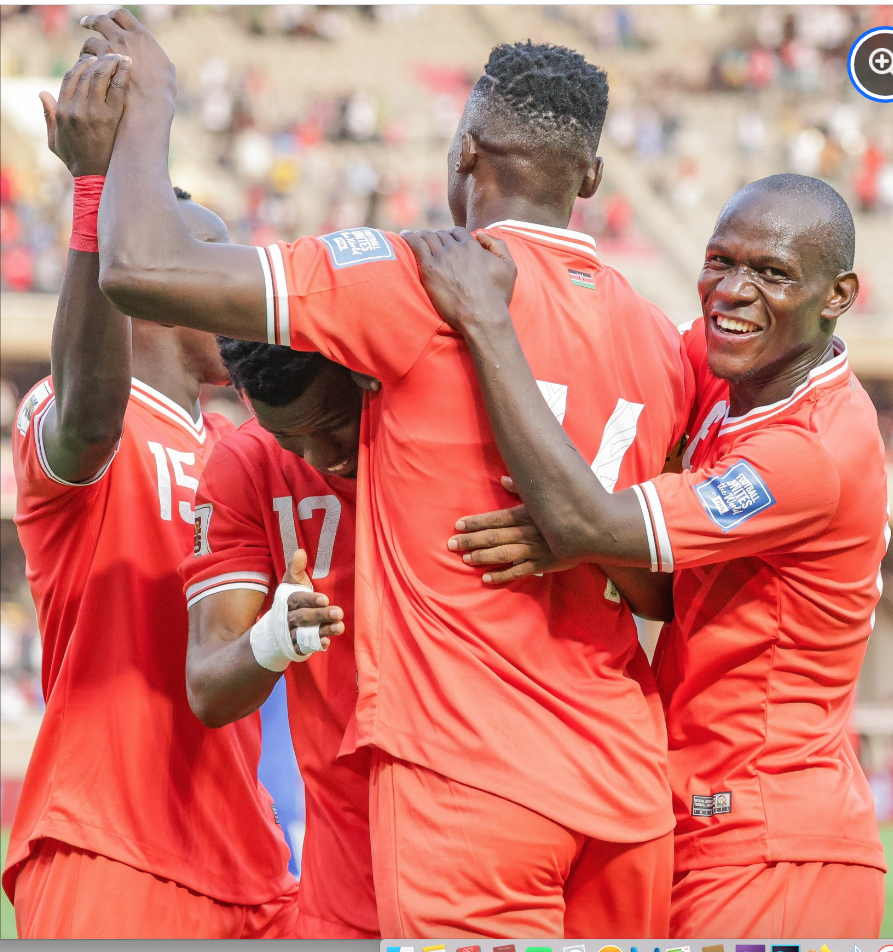

Harambee Stars head coach Benni McCarthy has issued a pointed reminder to the Cote d'Ivoire ahead of their final 2026 FIFA World Cup qualifying clash — that football, for all its logic and paper predictions, is ultimately decided on grass and grit.
The Harambee Stars have already fallen out of contention for next year’s finals, yet McCarthy has made it clear that his players will not be mere participants in the closing rounds.
Kenya is set to face Burundi and Cote d'Ivoire in back-to-back fixtures that could still alter the destiny of Group F, where the Ivorians and Gabon are neck-and-neck for qualification.
“We know what is at stake,” McCarthy said after a training session in Nairobi. “We are going into the lion’s den because for Cote d'Ivoire, a win will secure automatic qualification — but we’re not here to do favours for anyone. We’re going there to win and take three points.”
That message — bold, defiant and unmistakably McCarthy — has resonated through the Kenyan camp.
The South African tactician, appointed in March 2025, has brought to the Harambee Stars a mixture of fire and method.
Though his tenure has been too brief to yield consistent results, the team’s growing tactical maturity has been noted.
The 47-year-old former Blackburn Rovers striker insists that Kenya’s matches against Burundi and Cote d'Ivoire offer a chance to show how far the team has come. “Football isn’t played on paper; it’s played on the pitch,” he said.
“We’ll play the best football we can, and hopefully, we win. They’ll come with the same mindset, but that’s what competition is about.”
Kenya will open their final qualifying window against Burundi at the Intwari Stadium on October 9 before travelling to Abidjan to face the reigning Africa Cup of Nations champions on October 14.
Though these fixtures are technically dead rubbers for the Harambee Stars, McCarthy has framed them as character tests — battles not for points alone but for pride and progression. “If we have to lose, it must be to a team that has truly outplayed us,” he said. “They have to earn it.”
One of the key talking points of McCarthy’s latest squad is the return of Gor Mahia captain Austin Odhiambo, whose absence from the last round of qualifiers had sparked fierce debate among fans and pundits alike.
Odhiambo was left out of the squad that faced The Gambia and Seychelles in September — matches that produced a 3-1 loss and a 5-0 win, respectively.
His exclusion was widely questioned, especially after his standout performances at the 2024 African Nations Championship (CHAN), where Kenya reached the knockout stages and Odhiambo scored twice.
But McCarthy insists the midfielder’s return is richly earned. “I’m happy for his comeback because he clearly got the message,” he said.
“He’s worked hard, played every match for his club, earned the captaincy, and shown leadership. No player is bigger than the team — if you don’t meet my standards, you’re out, no matter how talented you are.”
Since his omission, Odhiambo has led Gor Mahia to successive league victories, anchoring midfield with composure and authority.
His reinstatement feels not only symbolic but strategic — an acknowledgement that discipline and performance now outweigh reputation. Beyond the qualifiers, McCarthy has also turned his attention to the domestic game.
The South African coach believes the FKF Premier League has grown in quality and competitiveness since his appointment, crediting increased visibility and accountability among players.
“It’s important for players to know the national team coach is watching,” he said. “When I or my staff attend matches, it lifts the standards. Everyone wants to show something special, something that might catch our eye.”
Since taking charge, McCarthy has made regular appearances at FKF Premier League games, often alongside his assistants.
Several locally based players have earned national call-ups as a result, helping bridge the long-standing divide between domestic and foreign-based talent. He believes this engagement has a ripple effect.
“When players see that the coach values the local league, the intensity rises,” he said. “It improves the competition, and that benefits everyone.”
McCarthy’s approach mirrors his own playing career — pragmatic yet driven by a deep belief in meritocracy. The 2004 UEFA Champions League winner under José Mourinho has sought to instil a similar ethos in his Kenyan side: fight for your place, earn your respect.
With the African Cup of Nations qualifiers for 2027 on the horizon, the coach’s focus extends beyond immediate results. His project, though still in its infancy, is about crafting a footballing culture rooted in professionalism and resilience. For now, McCarthy knows that results are the surest way to cement that belief.
Against Burundi and Ivory Coast, Kenya may not have the qualification to chase — but they have pride, growth, and identity to defend.
“Every match is a chance to prove who we are becoming,” he said, his tone measured but resolute. “This team has potential. We’re not there yet, but we’re on the path.”















